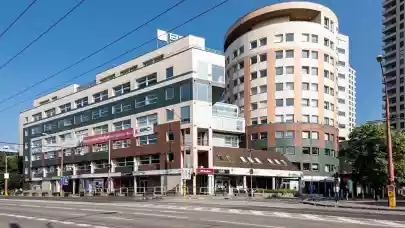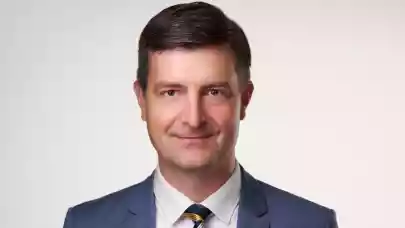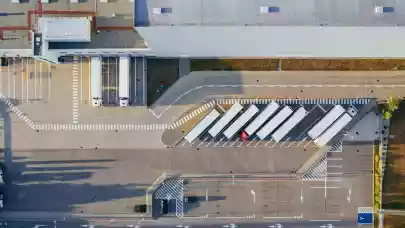
Is the hotel market in CEE coming back strongly? According to the participants of a panel discussion at the CEE Property Forum 2023, the answer is „definitely yes”. The event took place at the end of September in Vienna.
At the beginning of the panel, its moderator, Paweł Nowakowski MRICS, Founder and CEO of PNC described the last years in the hotel industry in the CEE region. Although they were difficult for the players involved, the sector eventually overcame the post-pandemic crisis. „The last three years were very difficult. At the beginning of 2020, we had an outbreak of a global pandemic and the limitations of travelling, followed by the lockdown and other numerous restrictions for the hotel industry. We have seen a lot of spectacular bankruptcies and the outburst of distressed sales. But despite all of this, developers and operators managed to survive and keep their businesses going. In 2021, vaccines became available, and limitations on travelling were loosened or removed. People, who were really tired of these lockdowns, literally stormed the locations at the seaside. We thought that the worst was behind us and our margins were constantly growing. But then the war in Ukraine began and its consequences were skyrocketing energy prices, high inflation and rising interest rates. Again, a huge catastrophe was expected and the market investors were preparing for fire sales of distressed assets. But once more, the hotel operators have adjusted to the market conditions, optimized and restructured their businesses”, said Nowakowski.
His words were confirmed by Andrea Róna, Group Director of Development at Danubius Hotels: ”The hotel industry is one of the most resilient industries in the world. Because we faced the virus and survived, we were able to develop a lot of new techniques and measures to do even better. We didn`t waste time during the COVID - we refurbished our hotels in Budapest and in the countryside to improve not only the product but also the experience. And it was rewarding. This is an industry, which can always renew itself and always can find a way to do better. As a representative of a hotel chain with 36 operating properties, I'm proud to say that the market is bouncing back. We don't have a problem with our income, the revenues are excellent. What`s more, we also have excellent outlooks, as the Chinese businessmen are starting to travel again.”
Adam Konieczny MRICS, Development Director Europe at Louvre Hotels Group was of a similar opinion. However, he pointed out that in the new environment, the interest of hotel investors is starting to change direction, as is the structure of the offered product. „We also see a significant recovery in the countries where we operate, last year was especially strong in Warsaw. This year, we also see the recovery in Prague and Budapest. Of course, many things changed after COVID. Before the pandemic, the investors` focus was more on the city hotels, now we see that their appetite is concentrated more on the south of Europe. Mediterranean countries are actually attracting the majority of the capital, also in terms of bank financing. it's definitely easier to run a hotel business in the south of Europe. The biggest challenge for the operators currently is the rising costs, which primarily affect the mid-market. The luxury market is getting stronger and because of the economic situation, more and more people can only pay for the budget options”, said Konieczny.
David Jenkins, Vice President - Business Development Eastern Europe at Radisson Hotel Group also noted the change of behaviour, both the investors and hotel guests, but in a slightly different manner: „We're seeing average daily rates shooting up, which is fantastic because it's covering to an extent the costs and the bottom line. What we're also observing, is a strong appetite from the investment market to move into hotels. The investors are coming to us with project conversion proposals, vacant office spaces that can be converted to hotels, resorts, service apartments, and different types of products than the traditional city centre hotel. And the changes are happening also on the different side of the fence - the guests want to travel differently, to spend more time in one place than they would in the past”, claimed Jenkins.
A slightly less optimistic view of the market was provided by Andreas Mayr, Managing Director at UBM Hotels Management: „The occupancy has not fully recovered yet. The leisure market was the first to recover. The business travel market has revived in the second place. But the congress market and MICE markets are still struggling. The inflation and war-related energy crises were really smashing. The energy costs nearly doubled, when compared to pre-pandemic levels, especially in Poland. The minimum wages are rising year by year. Our industry really needs the return of Chinese business travellers”. According to Mayr, the nearest future in the hotel market will belong to brand networks and ESG hotels. „The biggest trend I see now is conversions from non-branded hotels to brand ones. In Europe, the percentage of branded hotels is about 40%. In the United States, it's about 70%. Even in southern markets like Greece, Spain or Italy, it's much lower. The customers are asking for brands and we see it. We also believe sustainable hotels will be a very big topic in the future. Institutional funds will simply not buy any buildings without a green certificate. So all the buildings that UBM is developing now will have them. Over 70% of these buildings are hybrid construction”, said a UBM representative.



